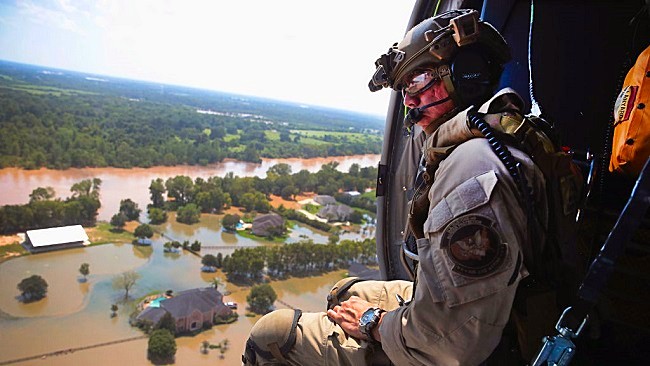
Nearly a week after then-Hurricane Harvey made landfall on the Texas coast, many of the evacuees among the over a million people believed to have been displaced by the storm have returned to Houston and the surrounding area to assess the damage. Numerous reports indicate an unconfirmed death toll ranging between the low 30s and up to 44, but as the floodwaters canvassing the region finally begin to recede, authorities fear these numbers will rise. So too will the number of Texas homes affected by Harvey, which the White House puts at 100,000. Over 30,000 displaced persons are staying in temporary shelters.
These people will eventually need more permanent accommodations until the extensive damage to their homes can be properly addressed. As former FEMA official Brad Gair explained to NPR, however, these recovery options will take months, if not years. “Most people are looking at it and saying, ‘Thank God, we’ve saved another family,'” he said. “I look at it and say, ‘Oh my God, there’s another family we’re going to have to figure out how to find housing for. And one more family that’s starting off on a journey, or more likely an ordeal, that will go on for many years to come.'”
Houston officials are surveying damage left behind by Harvey. WH estimates the storm affected 100K Texas homes: https://t.co/texsB9reHs pic.twitter.com/AV1mIrIkWO
— CBS News (@CBSNews) September 1, 2017
Despite the seemingly insurmountable task set before southeast Texas and southern Louisiana, Houston Mayor Sylvester Turner told reporters the city “is open for business” on Thursday. “We are turning the corner,” he declared. “And quite frankly, we’re open for business right now.” Sure enough, enough water has dissipated so that some displaced by Harvey’s initial onslaught can return to their homes, remove everything waterlogged by the floodwaters, and begin repairs. Yet many neighborhoods remain partially submerged, especially those affected by levee breaches and intentional dam releases meant to alleviate pressure.
What’s more, incredibly weakened or damaged infrastructure means many roads and major highways remain impassable, potable drinking water is scarce, and power outages are frequent. Officials are also cautious regarding damaged chemical facilities in Houston’s massive industrial centers, like the Arkema Group chemical plant that exploded twice Thursday morning. The company announced the initial fires were out, but authorities — including the U.S. Chemical Safety and Hazard Investigation Board — are still monitoring the matter.
